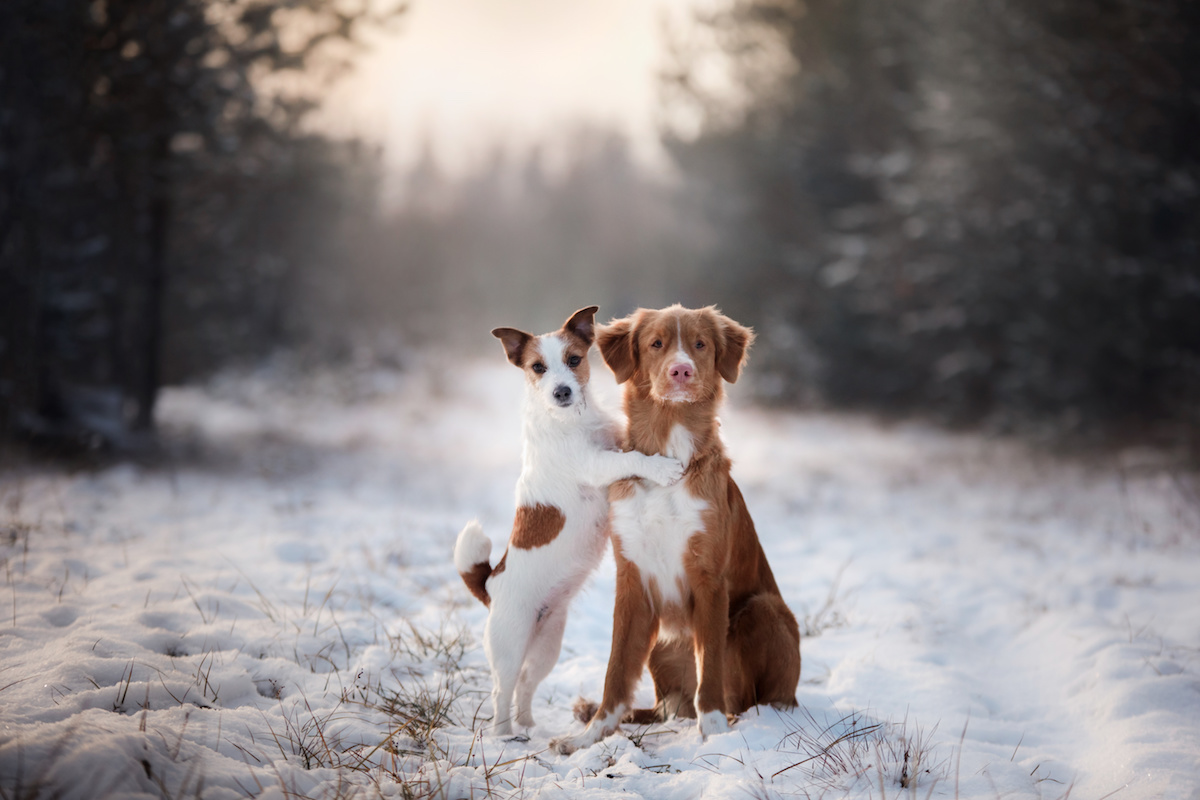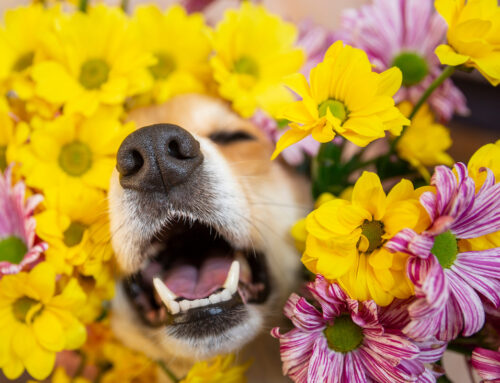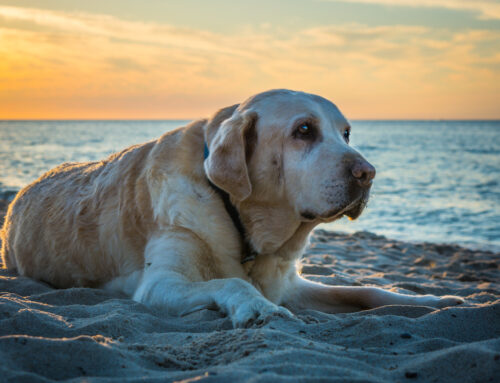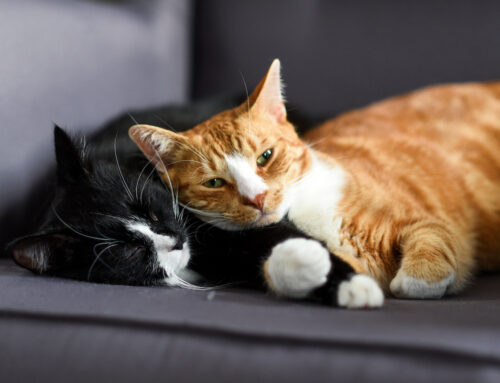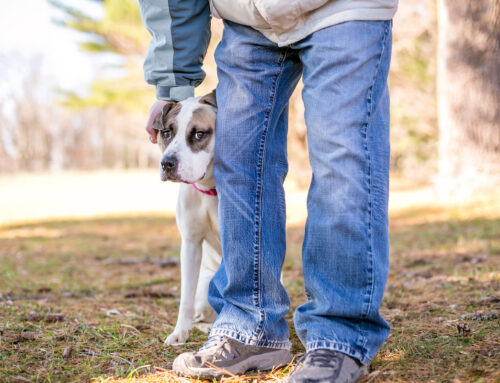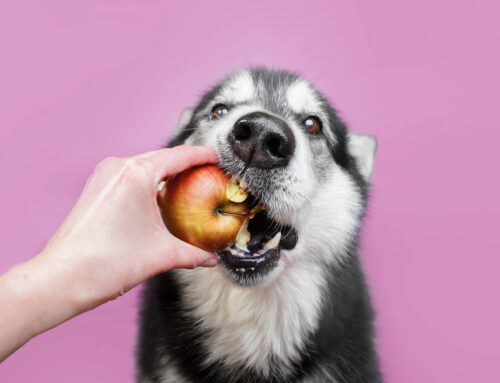With the temperatures dropping below freezing this winter, it is extremely important to keep your pets safe. The Humane Society, American Society for the Prevention of Cruelty to Animals ASPCA and Great Plains SPCA all have some great ideas for pet safety as shown below.
Know your dog’s limits!
Some dogs are more susceptible to the cold than others. Short-coated, thin, elderly, or very young dogs get cold more quickly – so adjust the amount of time they stay outside! If your dog enjoys being outdoors and you will be outside longer than a few minutes, consider outfitting it with a sweater or coat to keep it warm. Hypothermia and frostbite pose major risks to dogs in winter, so remember, if it is too cold for you, it is probably too cold for your dog!
Check the hood!
Cats often sleep in the wheel wells of cars during the winter months to keep warm. If you start your car and a cat is sleeping on your tire, it can be severely hurt or even killed by moving engine parts. Prevent injuries by banging loudly on your hood or honking the horn before starting your car. This will wake up the cat and give it a chance to escape before starting the car.
Wipe their paws!
During winter walks, your dog’s paws can pick up all kinds of toxic chemicals – salt, antifreeze, or de-icers. Be sure to wipe off your dog’s paws when you return from walks to prevent him from licking it off and becoming sick. Purchase pet-safe de-icers for your home for an extra level of safety. And when wiping off your dog’s paws, remember to check for signs of injury, such as cracked or bleeding paws.
Rock salt and other chemicals used to melt snow and ice can irritate the pads of your pet’s feet. Wipe all paws with a damp towel before your pet licks them and irritates their mouth.
Bring a towel on long walks to clean off stinging, irritated paws. After each walk, wash and dry your pet’s feet and stomach to remove ice, salt and chemicals—and check for cracks in paw pads or redness between the toes.
Wear a sweater
No matter what the temperature is, windchill can threaten a pet’s life.Exposed skin on noses, ears and paw pads are at risk for frostbite and hypothermia during extreme cold snaps. For this reason, short-haired dogs often feel more comfortable wearing a sweater—even during short walks.
Keep them leashed!
More pets become lost in the winter than any other season because snowfall can disguise recognizable scents that would normally help them find their way home. Prevent your pets from becoming lost by keeping dogs leashed on walks and, just in case you are separated from your pets, make sure their collars have up-to-date contact information and they are microchipped.
Avoid the ice!
When walking your dog, be sure to avoid frozen lakes and ponds. Your dog could be seriously hurt or even killed if the ice breaks.
Leave them home!
Just as hot cars are dangerous for pets in the summer, cold cars pose a threat as well! Only take your pets in the car if it is necessary, and never leave them unattended.
Be seen!
Due to Daylight Savings, many of us are relegated to walking our dogs in the dark. Keep yourself and your dog are safe by wearing reflective gear (clothing, leash, collar, etc.) and keeping your dog close when walking on the street.
Give them shelter!
Ideally, all pets should live inside. If your pets live outdoors primarily, bring them indoors during sub-zero temperatures. For the rest of the winter, provide them with a dry, draft-free shelter that is large enough to allow them to sit and lay down comfortably, but small enough to conserve body heat. The floor should be raised a few inches off the ground and covered with cedar shavings or straw. Turn the shelter so it faces away from the wind and cover the doorway with waterproof burlap or heavy plastic. Also, pets who spend a lot of time outside need more food to replace energy lost from trying to stay warm. Use plastic food and water dishes instead of metal – when the temperature is low enough, your pets’ tongue can become stuck to metal.
Avoid spills!
Antifreeze attracts cats and dogs because it is very sweet to taste, but it is extremely poisonous and can cause serious illness or death when ingested. Be sure to clean up any antifreeze that spills in your garage, and keep the bottle somewhere your pets cannot access.Be prepared! Winter brings extreme weather that can cause power outages. Have an emergency plan and make sure they include your pets! Have an emergency kit with enough food, water, and medication to last your pets at least five days. Most likely you will never need it, but if you do, you will be thankful you planned ahead!
Bathe less
Bathe your pets as little as possible during cold spells. Washing too often can remove essential oils and increase the chance of developing dry, flaky skin. If your pooch must be bathed, ask your vet to recommend a moisturizing shampoo and/or rinse.
Feed less
Pets burn extra energy by trying to stay warm in wintertime. Feeding your pet a little bit more during the cold weather months can provide much-needed calories, and making sure she has plenty of water to drink will help keep her well-hydrated and her skin less dry.
Cozy bed
Make sure your companion animal has a warm place to sleep, off the floor and away from all drafts. A cozy dog or cat bed with a warm blanket or pillow is perfect.
Keep pets sheltered
Keep your pets inside with you and your family. Under no circumstances should pet cats be left outdoors, even if they roam outside during other seasons. Dogs are happiest when taken out frequently for walks and exercise, but kept inside the rest of the time. Don’t leave pets outdoors when the temperature drops.
Pets who spend a lot of time outdoors need more food in the winter because keeping warm depletes energy. Routinely check your pet’s water dish to make certain the water is fresh and unfrozen. Use plastic food and water bowls; when the temperature is low, your pet’s tongue can stick and freeze to metal.
Remove common poisons
Antifreeze is a deadly poison, but it has a sweet taste that may attract animals and children. Wipe up any antifreeze spills immediately and keep it, like all household chemicals, out of reach. Coolants and antifreeze made with propylene glycol are less toxic to pets, wildlife and family.
Protect outdoor animals
If there are outdoor cats, either owned pets or community cats in your area, remember that they need protection from the elements as well as food and water. It’s easy to give them a hand. You can make your own cat shelter quickly and easily with a plastic tub.
Source: Great Plains SPCA, Humane Society, American Society for the Prevention of Cruelty to Animals ASPCA Animal Care Center in Smyrna, GA, is owned and operated by Otto H. Williams, DVM. The veterinary practice specializes in complete healthcare for cats and dogs and offers services including preventative, surgical and nonsurgical care, internal medicine, grooming and boarding to Cobb County and surrounding cities such as Vinings, Marietta, Mableton and Sandy Springs. Call today at 770.438.2694 or request an appointment.

